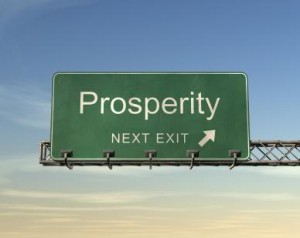We decided the old church building needed a paint job. For whatever reason, I can’t remember, I found myself up on a ladder “helping” the veteran painters tackle the street-facing portion of the church. It was, of course, where the cross hung pristinely in view for passers-by. It was my duty-by-default to repaint the cross.
Up on the ladder I climbed, bucket and brush in hand(s), and began to give a fresh look to an old cross (fascinating, ironic, meditative… but not the point of this article). Not an experienced painter, not even a painter, I dipped the brush in the bucket and sought to impress my more-experienced-observers with my focus, skill and stewardship of the paint. I brushed further and further, spreading the paint as well and as far as I could (clearly it was more economical to spread it out, really get all the paint out of the brush, good stewardship, maximize potential… look how much territory I was covering!) When I noticed there was nearly no paint left on the brush, I (begrudgingly) went back for more paint. And then started painting… somewhere where I’d left off… not exactly sure where… but started covering more territory.
The patient painter behind me could bear no more. He quietly said to me, “you have to keep a wet edge. Don’t dry your brush out or you’ll just have to repaint it.” He went on to explain how and why what I was doing was wrong. But I gently said, “Stop. You just said something that probably I should never forget. Keep a wet edge.” I am not sure how long I continued painting, I’d like to think I finished re-presenting the cross… I’d like to think that one day I will truly finish re-presenting the cross. But for today, what I need to remember is this: Keep a wet edge.
Leaders need to keep a wet edge. Parents do. Pastors do. Anyone whose hope or duty it is to spread the influence of good, of grace, of wisdom, of counsel, of kindness upon the canvas of this world – needs to keep a wet edge.
Never let your brush run dry. Don’t deceive yourself into believing that you are just working harder or maximizing your potential. You’re just painting like a novice. You may be covering more ground, but your impact will be thin and influence short.
Never let your brush run dry. Stay close to the Source. Immerse yourself often. Stay conscious of “why” you are doing and “Who” are you doing it for. Don’t get too far away from the bucket. Read the bible for pleasure and reflection. Often. Take a moment of private devotion and worship and gratitude – without it being part of a formality or corporate responsibility. Pray in the Spirit. Spend a little extra time with people who make you laugh and who encourage you. Spend a little more time alone. It may look a little different for you than for me, but neither of us can afford too much time away from the bucket. Keep a wet edge.
The alternative is, without exception, that you will find yourself leaning over a ladder, arms stretched as far as possible, with maximum exertion, but spreading the least amount of paint. Then you, or someone else, will just have to paint again. Dry brushes make for wasted energy. Stay close to the bucket. Never let your brush run dry. Keep a wet edge.









